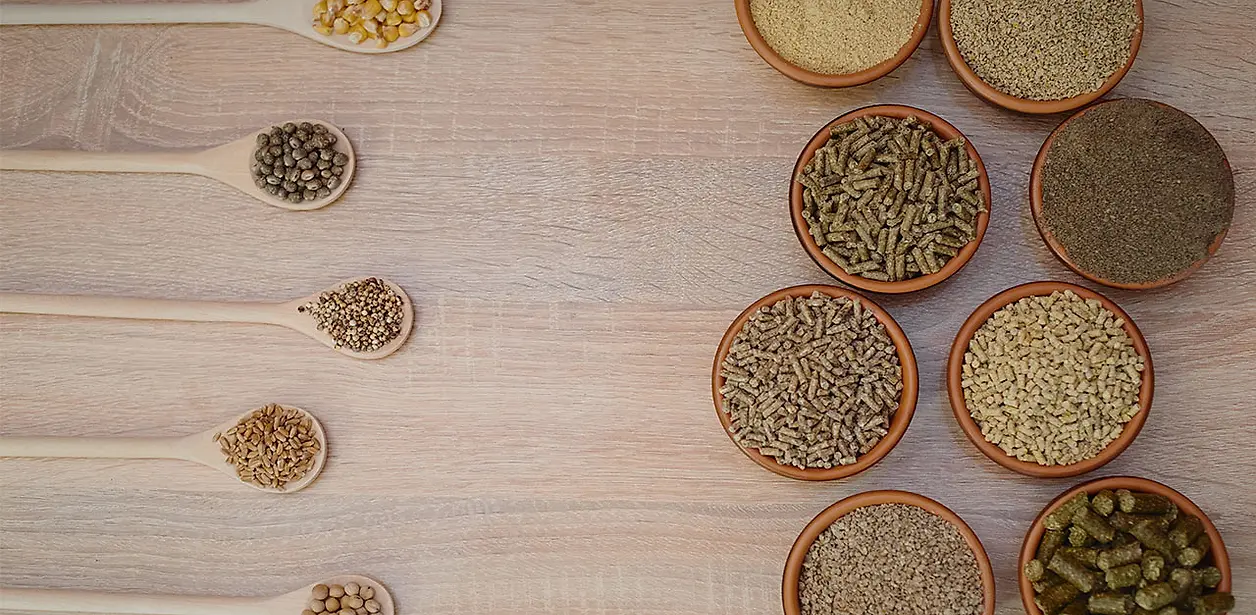ISO 84563 Moisture Content Analysis in Feed Concentrates
The moisture content of feed concentrates is a critical parameter that influences not only the quality and stability of feeds but also their nutritional value. High moisture levels can lead to spoilage, increased mold growth, and significant financial losses for producers. Conversely, low moisture contents may result in poor palatability or reduced shelf life.
ISO 84563 provides a robust method for determining the moisture content of feed concentrates by drying samples at controlled temperatures until they reach a constant weight. This standard ensures consistent and reliable results, which are essential for quality control and regulatory compliance.
The process involves precise sample preparation to ensure accurate readings. Samples must be representative of the entire batch and free from contaminants that could affect moisture content. After preparation, the samples are dried in an oven at 105°C until they achieve a constant weight. The difference between the original and final weights is used to calculate the moisture percentage.
Using this method ensures accurate results across different feed concentrate types, whether they are composed of grains, proteins, fats, or other components. This service helps food & feed testing laboratories maintain high standards of quality control and compliance with international regulations.
The precision of ISO 84563 is further enhanced by the use of modern drying equipment that allows for precise temperature control and accurate weighing systems. These instruments ensure consistent results every time, minimizing variability in the measurement process.
Understanding the moisture content of feed concentrates is crucial not only for quality assurance but also for economic reasons. A higher moisture level can lead to increased transportation costs due to the need for additional space or refrigeration, while lower levels might result in reduced product weight and higher production costs.
In summary, accurate moisture content analysis using ISO 84563 is vital for maintaining quality standards and ensuring compliance with international regulations. It also helps in optimizing feed formulations, reducing waste, and enhancing overall efficiency in the food & feed industry.
| Applied Standards | Description |
|---|---|
| ISO 84563:2019 | Determination of moisture content in feed concentrates by drying at constant temperature. |
Applied Standards
- ISO 84563:2019 - Determination of moisture content in feed concentrates by drying at constant temperature.
Eurolab Advantages
At Eurolab, we leverage our extensive expertise to provide accurate and reliable ISO 84563 moisture content analysis. Our team of qualified professionals ensures that every sample is prepared meticulously and dried under controlled conditions.
We employ state-of-the-art equipment, including high-precision ovens and scales, which guarantee consistent results across all samples analyzed. This precision aligns perfectly with the stringent requirements outlined in ISO 84563, ensuring compliance with international standards.
Our laboratories are equipped to handle a wide range of feed concentrate types, from grain-based products to those containing specialized proteins or fats. With our advanced analytical capabilities, we can provide detailed insights into moisture content variations within batches, aiding in quality control and process optimization.
The use of ISO 84563 ensures that our clients receive consistent results every time, which is crucial for maintaining high standards of product quality and regulatory compliance. Our commitment to excellence extends beyond just technical accuracy; we also ensure timely delivery and clear communication of results, allowing you to make informed decisions promptly.
Environmental and Sustainability Contributions
- Reduction in waste by ensuring accurate moisture content analysis.
- Optimization of feed formulations for better efficiency and reduced resource consumption.
- Promotion of sustainable practices through precise quality control, leading to less spoilage and higher product shelf life.
- Supporting compliance with international standards that contribute to global food safety and sustainability goals.





